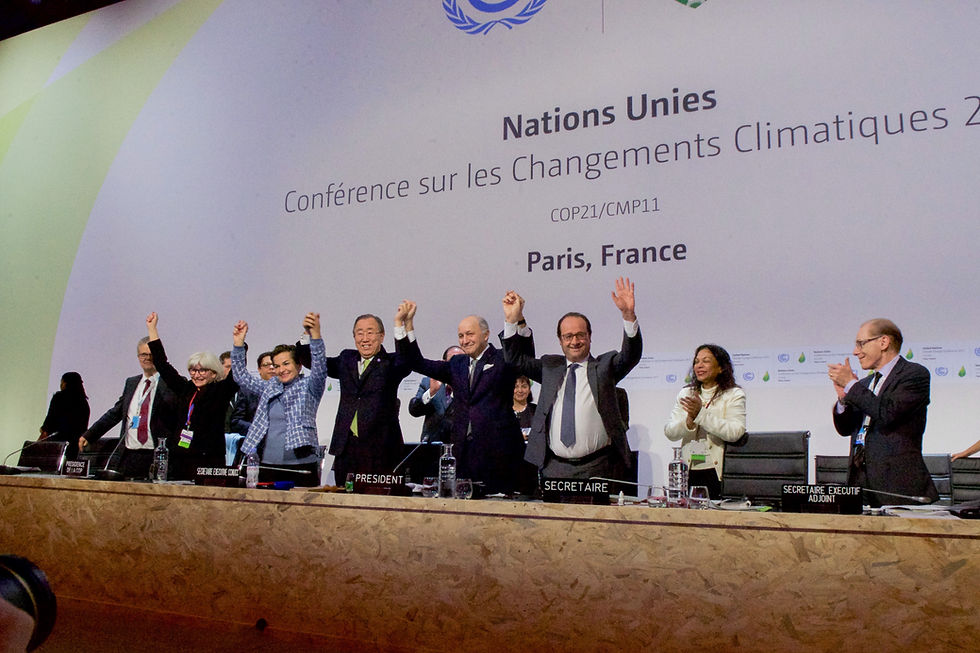Fighting climate change without the Paris Climate agreement
- bostonpoliticalrev
- Sep 4, 2017
- 3 min read

Prior to the start of this summer, only two countries had failed to sign onto the Paris climate agreement. Those two countries were Syria and Nicaragua, the former of which has been ravaged by a bloody civil war and the latter of which boasts a low GDP and income per capita. But, that list of countries grew to three, when President Trump verbally expressed his intentions to pull the United States out of the Paris Climate agreement. That informal initiative went into action in late August when the United States submitted that intention to the United Nations.
The goals of the deal are to cut carbon emissions, reduce waste, transition countries to more renewable energy sources, and ensure a safer planet for all. It also aims to lower temperature growth to 2 degrees (Celsius) by the end of the century. President Trump believes that these goals pose as restrictions for the United States economically. He hopes that by pulling out the United States will enjoy job growth, innovation, and even investments in the coal industry.
So what’s the problem with the United States pulling out? From a policy perspective, Trump’s decision is not entirely based upon reliable measures and facts. When reflecting on intended job growth, Trump notes the increased potential for coal mining jobs. This standpoint neglects to think about opportunities outside of either coal or fossil fuels in general. The market for renewable energy is entirely larger than that of the coal mining industry, but the president’s viewpoint fails to recognize this fact. Clean energy is a continuously expanding market with growing employment, yet the president is focused on an industry that is dying out in the United States. Further, several coal industries encouraged the administration to remain in the climate deal.
Beyond these issues, the climate deal’s central role in reducing carbon emissions and temperature spikes is ignored by Trump’s decision. The United States had barely passed in meeting the requirements under Obama’s administration and regulation, and the lack of involvement with the Paris deal means missed opportunities in limiting carbon emissions. Pulling out of the deal, in conjunction with Trump’s in-place and expected lax regulation of the environment fails to tackle climate change affecting the globe.
While the United States had been seen as the forefront of global decisions and rallying, that role is slowly drifting away. The climate change situation only reflects that transition. While the United States had previously fought for climate regulation and environmental restrictions, Trump’s choice signals a move away from the United States setting the precedent for the rest of the world to follow.
Moving forward, the situation marks the necessity of all citizens to partake in environmentally-conscious policies and actions. Collectively, individual actions do play a difference in maintaining the ideals and goals of the Paris agreement. More environmentally-friendly choices can be taken choices in our everyday lives that can help reach those goals. For example, reusable bags, foregoing plastic utensils and cups, decreasing shower times, and reducing meat consumption are all shown to decrease waste in a direct way. When added together, our small actions matter as much as the macro-choices that our political leaders make and can ultimately make an impact. The best part is that they don’t require the massive energy or fight to push - they can be started immediately, easily, and seamlessly!
Luckily, the president’s action has only recently been submitted to the United Nations. It’s expected that the earliest we can leave is in 2020, three years from now. The Obama administration has already implemented several policies intended at combatting climate change throughout the next few years. Moreover, forthcoming presidents can repeal Trump’s actions and reaffirm the United States commitment to a greener planet.






Comments